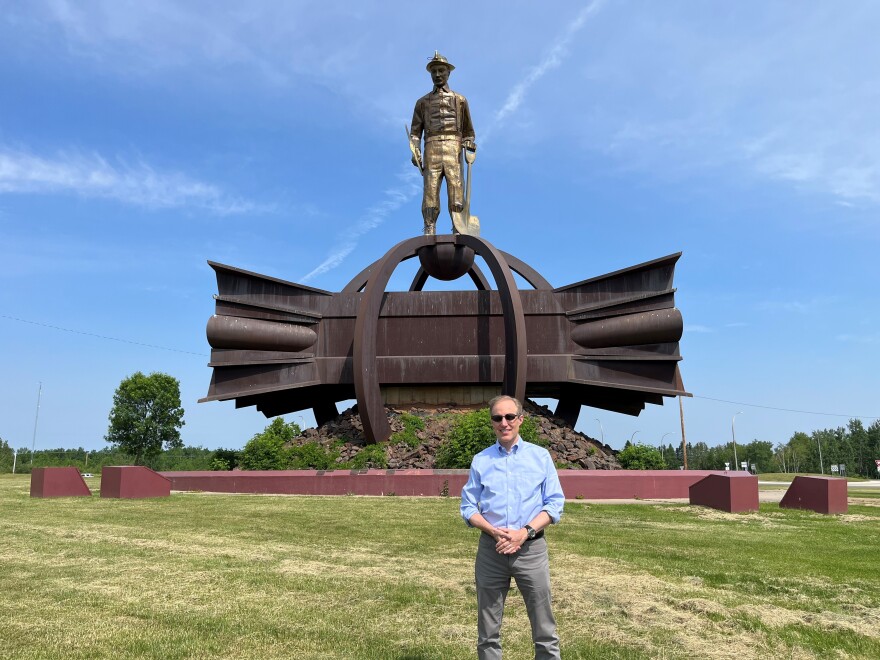IRON RANGE —Minnesota Secretary of State Steve Simon is heading to Northern Minnesota this week to talk about new election laws.
He said on the KAXE Morning Show the recent election laws passed by the Minnesota Legislature are “once-in-a-generation changes” that will make an already excellent system even better.
Minnesota has consistently had the highest voter turnout or finds itself among the highest in the nation. Simon said there are really good laws on the books already, but new laws would enhance automatic voter registration, add preregistration for 16- and 17-year-olds and restore the right to vote to people who have left prison behind.

“I’m talking about people who years, sometimes decades ago, have left all that behind,” he said. “And a judge and jury has determined that they’re good enough and safe enough and worthy enough to be walking around with the rest of us.”
Simon described challenges of some people who have committed crimes and were incarcerated but go on to be on probation for years and sometimes decades.
He told the story of an advocate for changing the law — a woman on probation for 40 years, after a drug conviction in her 20s. This meant she couldn’t vote until age 71, despite living, working and paying taxes like other Minnesotans, Simon said.

This isn’t just a good deed, the secretary of state said about the legislation.
“There are a ton of studies out there that show that when people feel that sense of investment, that sense of ownership with things like voting, they’re far less likely to reoffend and they’re not back in prison,” he said. “So, it’s a win win.”
Other election bills recently passed into law include protections of election administration and election workers.
“There has been a disturbing national trend, and we’re not immune to that trend in Minnesota,” he said.
Simon described isolated incidents when election judges and workers were followed home, harassed and even physically attacked in some cases.
“Everyone’s got a right to express themselves, to use salty language, whatever you want to do. No one’s looking to target that kind of thing, but there’s limits,” he said. “You can do it in an expressive way, but you can’t harass or threaten someone, just as in any other workplace.”
Simon spoke of bipartisan support for election law reform, but also stressed the national narrative which has included disinformation about voter fraud. He said during the 2020 election with 3.3 million voters in Minnesota, the actual proven number of cases of misconduct, fraud or wrongdoing was 17.
“That’s a tiny, tiny, microscopic level of wrongdoing,” Simon said.
“There are a ton of studies out there that show that when people feel that sense of investment, that sense of ownership with things like voting, they’re far less likely to reoffend and they’re not back in prison."Steve Simon, Minnesota secretary of state
30,000 election judges needed in Minnesota
Simon described how in Minnesota, poll workers are called election judges.
“They don’t have a gavel in their hand like a judge, but we call them election judges and I like that title because they are judges,” he said. “They are committed to fairness, not any particular side.”
Simon encouraged people to consider becoming election judges, noting it's a paid opportunity. It requires two hours of paid training time ahead of Election Day.
"You're helping to run the polling place," Simon said of election judges. "You're joining friends and neighbors."
Contact the local city or township office to find out how to become an election judge or visit the Secretary of State’s website.







